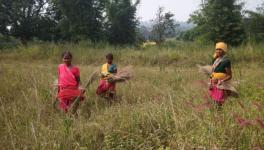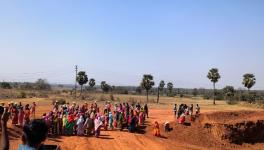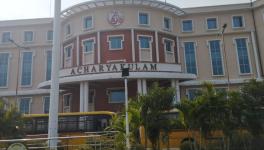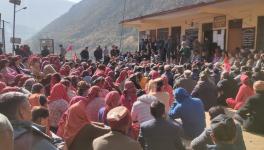Is Centre Violating Peoples’ Rights for Acquiring Coal-Bearing Land in Chhattisgarh?
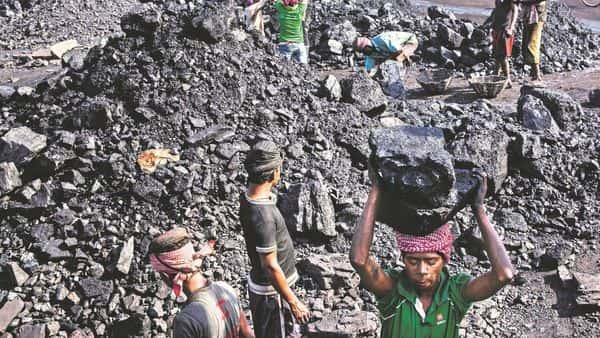
Image Courtesy: Mint
New Delhi: On December 24, 2020, the Central government invoked the Coal Bearing Areas (Acquisition & Development) Act, 1957 for acquiring over 700 hectares of land in tribal-dominated Korba district of Chhattisgarh, with no clarity yet on whether consent from gram sabhas will be sought through public consultations.
The land, sought to be acquired by the Union Coal Ministry, is for developing the greenfield Madanpur South Coal Block which had been allotted by the Central government to Andhra Pradesh Mineral Development Corporation (APMDC) in September 2016. The Aditya Birla Group’s mining arm, Essel Mining & Industries Limited, is the private Mine Developer and Operator (MDO) for the Madanpur South Block.
The coal block falls within the Hasdeo Arand area, a very dense and unfragmented stretch of natural forest that is rich in wildlife as well as coal reserves. The Chhattisgarh government has also proposed an elephant reserve spreading across this area which is, however, yet to be formally notified. It has been alleged that the land is being acquired bypassing powers of the state government as well as provisions meant to protect the rights of tribals.
“Madanpur South coal block falls in an area in Korba district designated as Schedule 5 under the Constitution of India due to its pre-ponderance of tribal population. By invoking the Coal Bearing Act for acquiring land in this area, the Central government is intending to bypass public consultations which are mandatory through gram sabhas for areas designated as Schedule 5,” said Alok Shukla of Chhattisgarh Bachao Andolan, a network of individuals and organisations fighting for peoples’ rights in the central Indian state.
The proportion of Scheduled Tribe population in Korba district is 40.90% in the Census of India data compiled for 2011. As per the Panchayats (Extension to Scheduled Areas) Act or the PESA Act of 1996, it is mandatory for governments to conduct public consultations through gram sabhas before acquiring land in Schedule 5 areas. However, the Coal Bearing Areas (Acquisition & Development) Act, 1957, which pre-dates the PESA by nearly 40 years, does not contain provisions for conducting public consultations through gram sabhas.
Therefore, in accordance with Section 7 of the Coal Bearing Act, the Central government has, through its notification last month, only given the mandatory period of 30 days for the general public to submit objections, if any, over rights on any parcel of land that will be notified for acquisition in Korba.
However, as per legal experts, local people living for centuries over land that has now been allotted for coal mining have very little say once it is notified for acquisition under the Coal Bearing Act of 1957. Some legal experts Newsclick spoke to said that rights over land practically go out of the hands of people in any coal bearing area as soon as a notification under Section 4 (for exploration of coal) of the Coal Bearing Act is issued. Further, with the notification of Section 7 (intention to acquire) of the Act, the only rights of project-affected people are to file objections within 30 days and claim their compensation amounts.
However, the Right to Fair Compensation and Transparency in Land Acquisition, Rehabilitation and Resettlement Act, 2013, does contain special provisions for Scheduled tribes with regard to acquisition of land. The question, therefore, is: did the Central government bypass the 2013 Act, formulated by the erstwhile Congress-led United Progressive Alliance (UPA) government, to bypass the rights of the Scheduled tribes?
“The Coal Bearing Act, very much like the Atomic Energy Act of 1962, is based on the principle of eminent domain, whereby the government has the power to take over private land and convert it into public use. These Acts work on the premise that coal and uranium are needed for the country’s energy security. Therefore, all deposits of coal and uranium are legally kept under the control of the Centre,” Rashmi Katyayan, a Ranchi-based legal expert on land acquisition, told Newsclick.
Of the 712.02 hectares sought to be acquired for the Madanpur South Block, roughly 650 hectares fall under the category of forest land. Nearly 503 hectares comprise ‘protected forest’ area. Nevertheless, the Central government has, through its December 24 notification, also notified these 650 hectares of forest areas for prospecting of coal under the Coal Bearing Act of 1957.
Activists allege that in the process of acquiring land through the Coal Bearing Act, public consultations are sought to be bypassed by the Central government in violation of the Forest Rights Act (FRA), 2006. Section 5 of the FRA bestows power upon gram sabhas to regulate access to community forest resources and stop any activity that adversely affects wild animals, forest, and biodiversity.
Besides, in the landmark Samata judgement of 1997, the Supreme Court had authorised the role of gram sabhas as democratic decision-making forums on issues of individual, community and cultural rights of tribals and traditional forest dwellers on forest land.
When asked by Newsclick on whether consent of gram sabhas will be taken before proceeding with land acquisition, Korba district collector Kiran Kaushal recused herself from making any comments on the issue. An official of the APMDC, however, said that a representation for conducting gram sabhas has been sent to the Korba district administration and that the dates for conducting the meetings have been twice deferred on account to one issue or another.
“We will not go for mining until and unless gram sabhas are held. A socio-economic assessment study has been conducted. Two villages are set to be affected by the mining project, namely, Ketma and Morga. The number of project-displaced families in Ketma is six, while the corresponding number for Morga village is 82. Nearly 90% of the population in these villages is Scheduled Tribes and Scheduled Castes. We will take all measures to ensure that these families are resettled comfortably. Whatever compensation is required in terms of alienation from forest rights will be suitably settled. Around 19 persons from Morga village have already given their consent for the project and information in this regard has been sent to the Union Coal Ministry, the district administration of Korba and the chief minister’s office in Chhattisgarh,” said the APMDC official, on condition of anonymity.
An email sent to Essel Mining & Industries Limited asking it about what measures, if at all, will be taken to ensure that rights of local stakeholders are not compromised, is yet to elicit any response. Responses are also awaited from Union Coal Ministry on email queries asking about the logic behind invoking provisions of the Coal Bearing Act, 1957 to acquire land for developing Madanpur South Coal Block and whether consent of gram sabhas will be obtained before the acquisition. This article will be updated as and when Newsclick receives responses to these queries.
From October to December 2019, local residents from at least 20 villages in the Hasdeo Arand region had sat on a protest against land acquired using the Coal Bearing Act of 1957 for Parsa coal block in Chhattisgarh. Their demands included revoking of mining clearances granted to the Parsa block without consulting the gram sabhas.
It has been further alleged by activists that applying the Coal Bearing Act to acquire land for Madanpur South is legally questionable because the block has been awarded to a public sector undertaking belonging to another state government, that is, Andhra Pradesh, while mining operations will be carried out by a private developer.
“It is a direct affront on the federal structure of the country. The Central government is acting toward concentration of powers in its own hands in taking over land under the Coal Bearing Act in favour of State public sector units having long-term MDO agreements with private companies. The Central government already enjoys unilateral powers in allotment of coal blocks and also in providing environmental clearances as well as forest clearances for projects,” said Raipur-based environmental activist and lawyer Sudiep Shrivastava.
Ahead of the Chhattisgarh Assembly elections in 2018, Congress leader Rahul Gandhi and the incumbent Chief Minister Bhupesh Bhagel had assured the electorate that no mining activities would be permitted in the state by violating rights of local people.
The Bharatiya Janata Party (BJP)-led National Democratic Alliance (NDA) Central government and the Congress government in Chhattisgarh have locked horns in the recent past over auction of coal blocks to private players for commercial mining. In June 2020, Prime Minister Narendra Modi announced the auction of 41 coal blocks for commercial mining by private players. However, this list was ultimately scaled down to 38 following vociferous opposition by the Congress government in Chhattisgarh against the auction of three blocks that are located in the densely forested areas of Hasdeo Arand. The Chhattisgarh government, has also, using powers vested to it in the Constitution, proposed the creation of an elephant reserve across Hasdeo Arand which may encompass several coal blocks that would make prospects of mining difficult in the area. This proposal, however, awaits a formal notification.
“The Central government is trying to assume absolute powers as far as coal mining is concerned because most of the coal-bearing states, including Chhattisgarh, are at present being ruled by political parties that are not aligned with the BJP-led NDA. However, it remains to be seen if the Chhattisgarh government agrees to submit proposal for Stage-I forest clearance for the project as the state government can still block the clearance,” added Shrivastava
The writer is an independent journalist.
Get the latest reports & analysis with people's perspective on Protests, movements & deep analytical videos, discussions of the current affairs in your Telegram app. Subscribe to NewsClick's Telegram channel & get Real-Time updates on stories, as they get published on our website.









